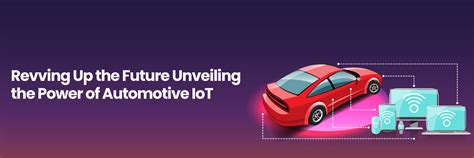The automotive industry has been undergoing a significant transformation in recent years, driven by advances in technology, changing consumer preferences, and shifting regulatory landscapes. The rise of electric vehicles, autonomous driving, and connected cars has led to a new era of innovation in the automotive sector. In this article, we will explore the key trends and technologies driving this transformation and what they mean for the future of transportation.

Electrification: The Rise of Electric Vehicles
One of the most significant trends in the automotive industry is the shift towards electrification. Electric vehicles (EVs) have been gaining popularity in recent years, driven by government incentives, declining battery costs, and growing consumer demand. EVs offer several benefits, including lower operating costs, reduced greenhouse gas emissions, and improved performance.
The growth of EVs has been driven by advancements in battery technology, which have improved the range and efficiency of electric vehicles. The development of new battery chemistries, such as lithium-ion and solid-state batteries, has enabled EVs to achieve ranges of over 300 miles on a single charge.

Benefits of Electric Vehicles
- Lower Operating Costs: EVs have lower operating costs compared to gasoline-powered vehicles, as electricity is generally cheaper than gasoline.
- Reduced Greenhouse Gas Emissions: EVs produce zero tailpipe emissions, reducing greenhouse gas emissions and air pollution in urban areas.
- Improved Performance: EVs have excellent acceleration and performance, thanks to the instant torque provided by electric motors.
Autonomous Driving: The Future of Transportation
Autonomous driving, also known as self-driving cars, is another significant trend in the automotive industry. Autonomous vehicles use a combination of sensors, cameras, and artificial intelligence to navigate roads and traffic conditions without human intervention.
Autonomous driving has the potential to revolutionize the way we travel, reducing accidents, improving traffic flow, and enhancing mobility for the elderly and disabled. Several companies, including Waymo, Tesla, and Uber, are already testing and deploying autonomous vehicles on public roads.

Benefits of Autonomous Driving
- Improved Safety: Autonomous vehicles can detect and respond to hazards more quickly and accurately than human drivers, reducing the risk of accidents.
- Increased Mobility: Autonomous vehicles can provide transportation for the elderly and disabled, enhancing their quality of life.
- Reduced Traffic Congestion: Autonomous vehicles can optimize traffic flow and reduce congestion, improving travel times and reducing fuel consumption.
Connected Cars: The Rise of IoT in Automotive
The Internet of Things (IoT) is transforming the automotive industry, enabling vehicles to communicate with other vehicles, infrastructure, and devices. Connected cars use wireless communication technologies, such as 4G and 5G, to connect to the internet and exchange data with other devices.
Connected cars offer several benefits, including improved safety, enhanced convenience, and increased efficiency. For example, connected cars can receive software updates remotely, reducing the need for physical recalls and improving overall safety.

Benefits of Connected Cars
- Improved Safety: Connected cars can receive critical safety updates and alerts, reducing the risk of accidents.
- Enhanced Convenience: Connected cars can provide drivers with real-time traffic updates, navigation, and entertainment, enhancing the overall driving experience.
- Increased Efficiency: Connected cars can optimize fuel consumption, reduce emissions, and improve overall efficiency.






In conclusion, the automotive industry is undergoing a significant transformation, driven by advances in technology, changing consumer preferences, and shifting regulatory landscapes. Electric vehicles, autonomous driving, and connected cars are just a few of the trends that are shaping the future of transportation. As technology continues to evolve, we can expect even more innovative solutions to emerge, enhancing the safety, convenience, and efficiency of transportation.
What is the future of transportation?
+The future of transportation is likely to be shaped by electric vehicles, autonomous driving, and connected cars. These technologies have the potential to improve safety, convenience, and efficiency, while reducing greenhouse gas emissions and air pollution.
What are the benefits of electric vehicles?
+Electric vehicles offer several benefits, including lower operating costs, reduced greenhouse gas emissions, and improved performance. They also provide a smoother and quieter ride, and require less maintenance than gasoline-powered vehicles.
What is autonomous driving?
+Autonomous driving, also known as self-driving cars, is a technology that enables vehicles to navigate roads and traffic conditions without human intervention. Autonomous vehicles use a combination of sensors, cameras, and artificial intelligence to detect and respond to hazards.
